Review: SAPAC Haunts The Soul With NEXT TO NORMAL
One more weekend to see this Pulitzer Prize-winning stunner.
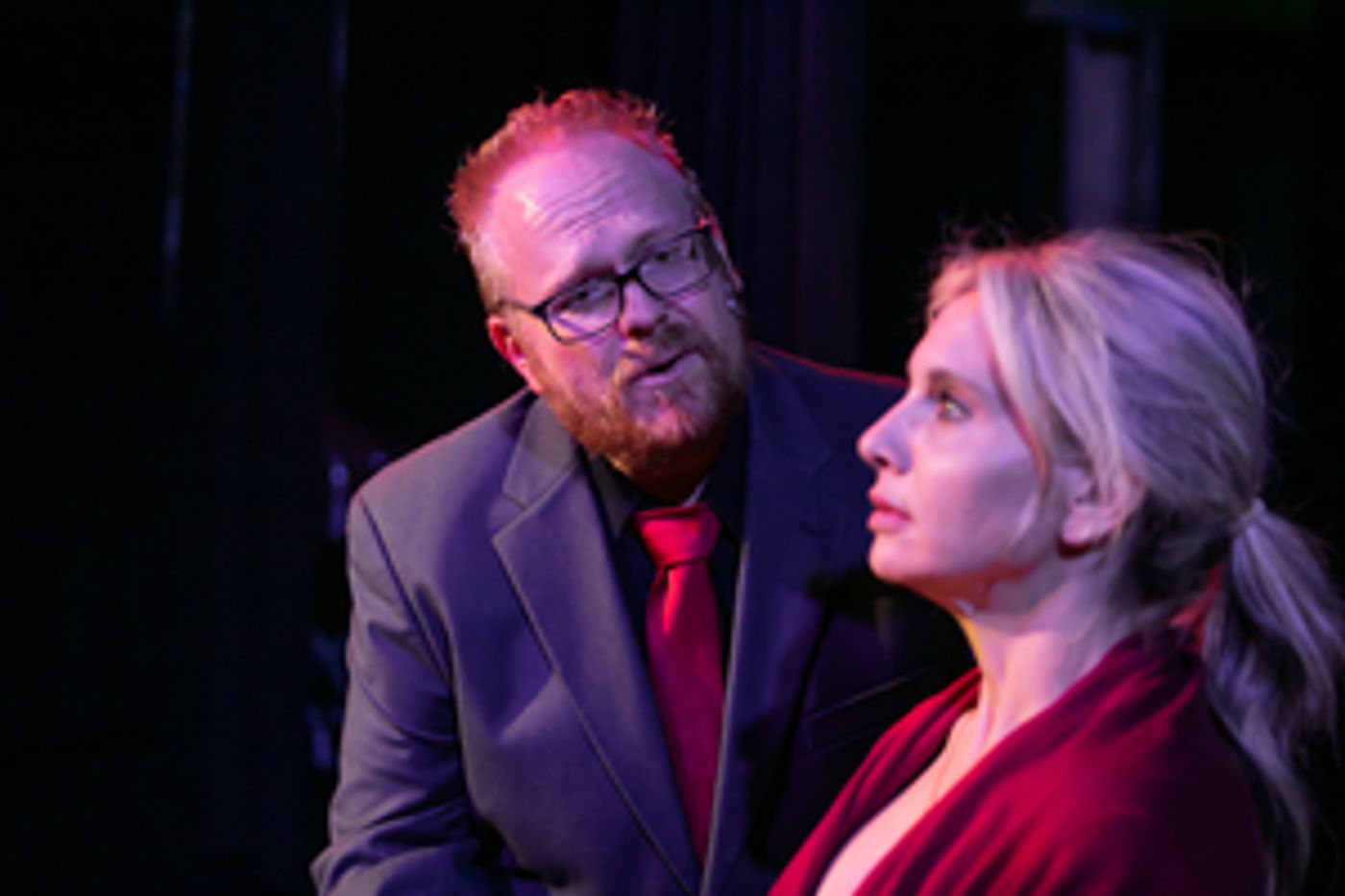
If you're among the theatre habitués who've felt an appreciable sense of the dark ages this past year and a half, you deserve to heave a sigh of relief and reclaim the privilege of a limited renaissance. Remember sitting in the audience and watching actors regale you in real time? Count me in among those raring to devour a good comic relief to lift us out of the dumps.
Know where you're headed, though, because not all theatre companies hear the same call. The folks at Southern Arizona Performing Arts Company (SAPAC) have a different idea for re-entry, risking the cold perception of self-indulgence by launching their season with a musical that chronicles the ravages of mental illness.
Hence we get NEXT TO NORMAL, a groundbreaking piece of theatre that rips your heart and shuns decorum by exposing the nasty secrets of an age-old affliction. But take comfort: The message is one of hope and redemption, which is more than I can say about the senseless debate on mask-wearing and vaccinations.
Here's a disclaimer that no judgment shall be passed on whatever genre a theatre company deems appropriate viewing for a community in despair. Our charge is to assess the value of a theatrical achievement that has made the regional rounds over the last decade or so, but whose portrait of a family in crisis is no less relevant here and now.
When it first opened on Broadway, the show ignited a discussion on a sundry list of disorders. The industry witnessed an artistic tour de force, a show that gained the imprimatur of the Pulitzer and Tony Awards and normalized a subject long presumed to be an anomaly for musical theatre. Among other triumphs, it cemented the rightful status of Alice Ripley, who played the central character, as a bonafide Broadway star.
It is not your feel-good, run-of-the-mill theatre date, but the show is bound to spark late-night musings on the power of collaborative art, the sort of masterpiece that exposes the psyche as a simultaneously exquisite and grotesque force of nature to reckon with.
No doubt a source of SAPAC's inspiration, the original creators didn't care to hold back. They exposed the ghastly descent of a beautiful mind while excoriating the dubious ethics of rogue psychopharmacologists. We're made to recall and empathize with unwitting patients, some of whom could well be loved ones in our midst, perpetually subjected to a battery of drugs as a way to sustain a modicum of sanity -- if languid stupor even qualifies as such.
Book and lyrics deftly written by Brian Yorkey, Tom Kitt provides a score that haunts and disturbs - rock music being the consummate genre to evoke the brain's furious, manic expression.
At Scoundrel and Scamp Theatre, SAPAC has assembled a team that lives up to the weighty requirements of this contemporary gem. And boy do they deliver.
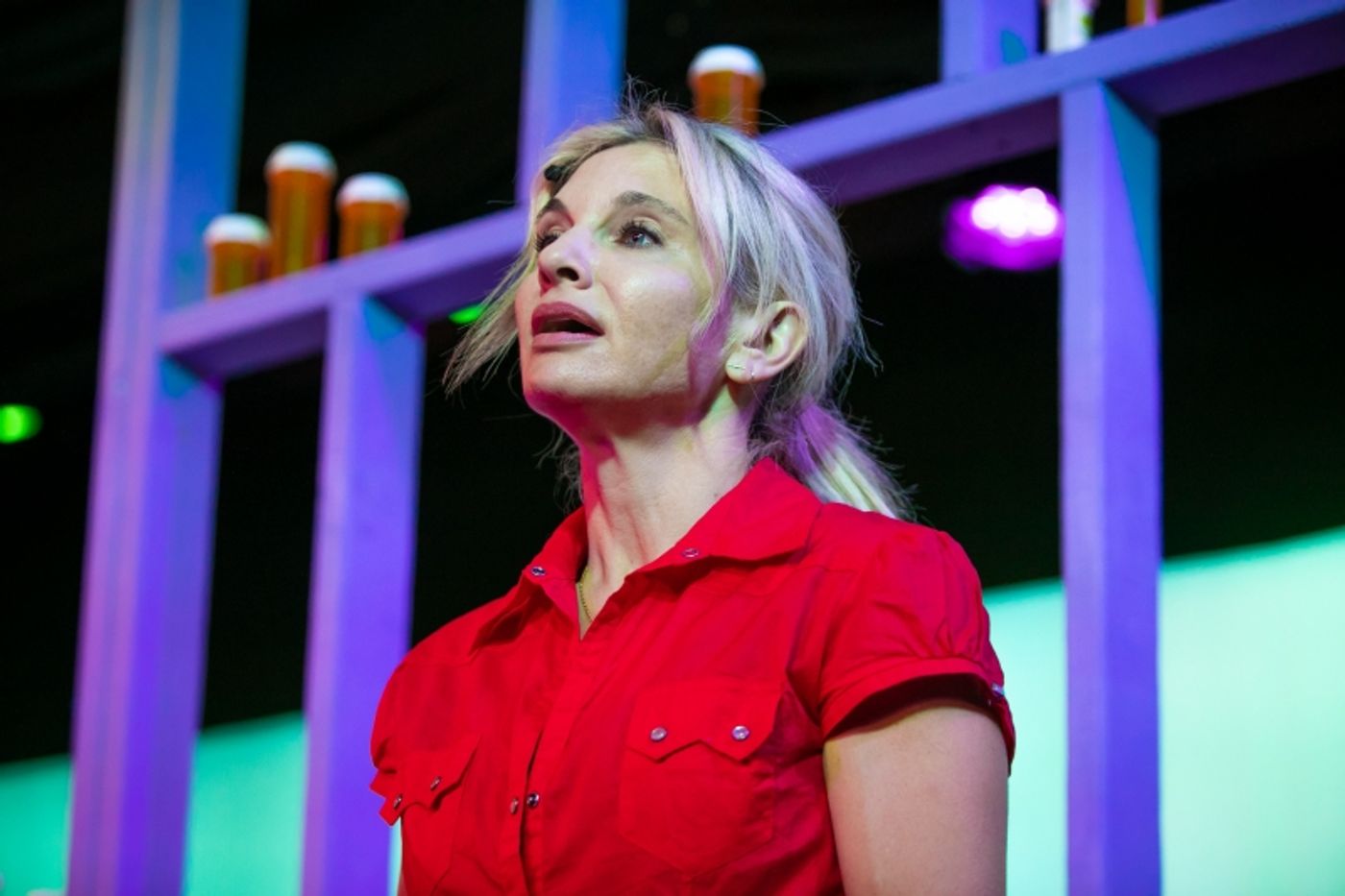
Liz Cracchiolo plays Diana, a mother with a severe case of bipolar disorder and a family charged with the Sysiphian task of pursuing a sense of order amidst her worsening emotional chaos.
Simply put, Cracchiolo is a marvel - a superb talent with remarkable vocal chops and a dynamic emotional range to boot. She gives us an intensely passionate Diana who takes on the biggest fight of her life while averting the easy bait to depict a powerless victim of chemistry and circumstance.
Indeed principal casting ought to be commended, and Annette Hillman's sensitive directing acknowledged, as we observe the seamlessness with which power shifts among family members. Diana obviously dominates the narrative, but her husband, Dan, assumes an immense responsibility for keeping Diana's equilibrium intact.
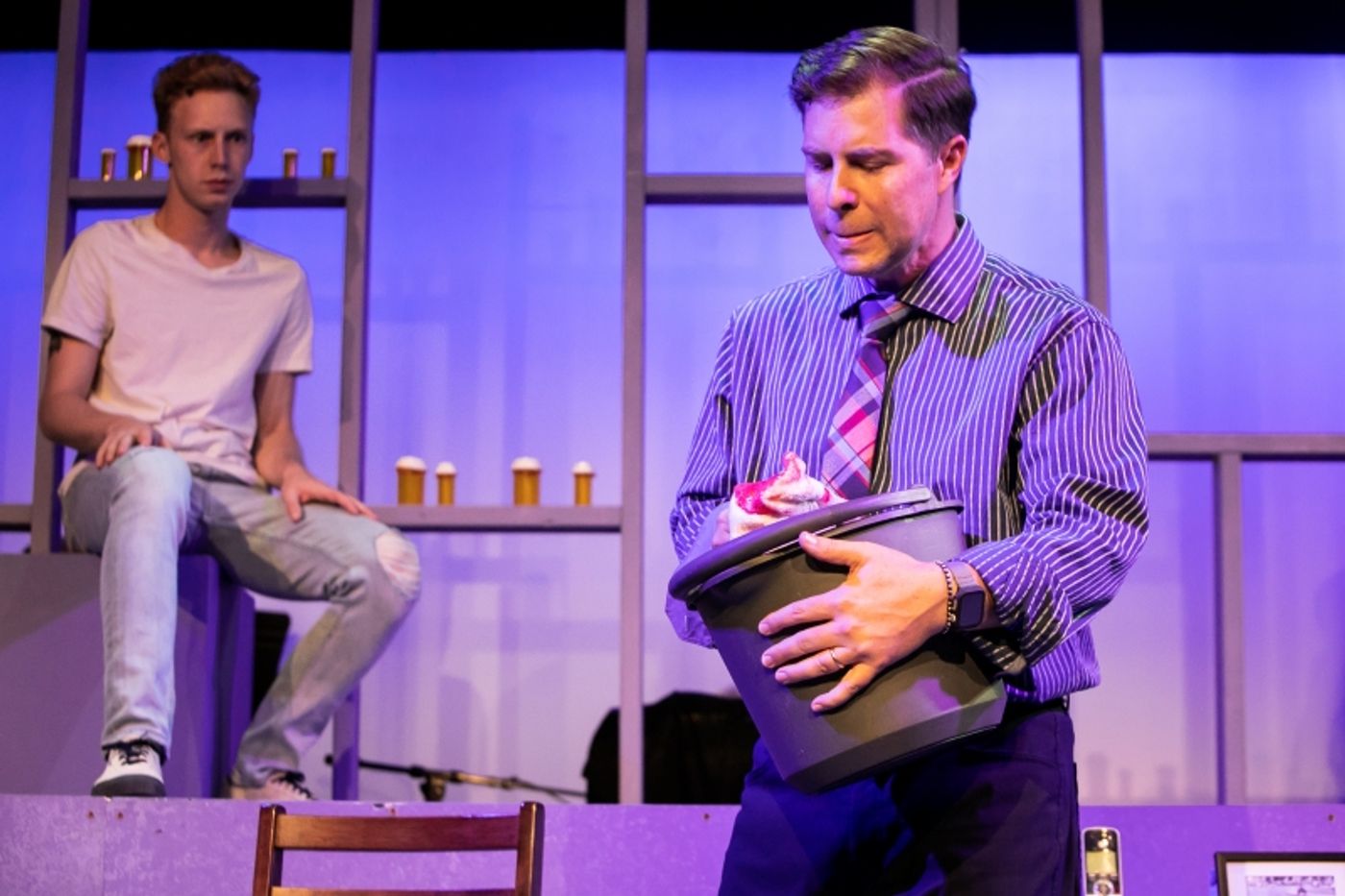
Matthew Holter is an empathetic Dan and we believe the stakes he's up against. His love for Diana is genuine and magnanimous; we hurt for him as he struggles to remind her of her worth. A seasoned lyric tenor, Holter is a revelation as an actor who holds a deep resource of emotional energy. (He might consider keeping his hands out of his pocket and folding his arms less frequently; a small peeve, I know, but doing so evinces the commitment and goes a long way in reinforcing his credible countenance.)
A short technical commentary: Timing can be tweaked where dialogue segues into song. If actors get there three seconds too soon, the awkward wait time ought to be justified. During certain musical numbers, vocal mic levels are uneven and need a heftier mix to counter the richer sound of instruments behind the singers.
All in all, it's a solid ensemble that appears to have bought into the collective adversity of mental illness. Though it feels like an isolated experience, it's clear that others are severely affected and that no one feels safe until everyone's shame is reconciled with the truth.
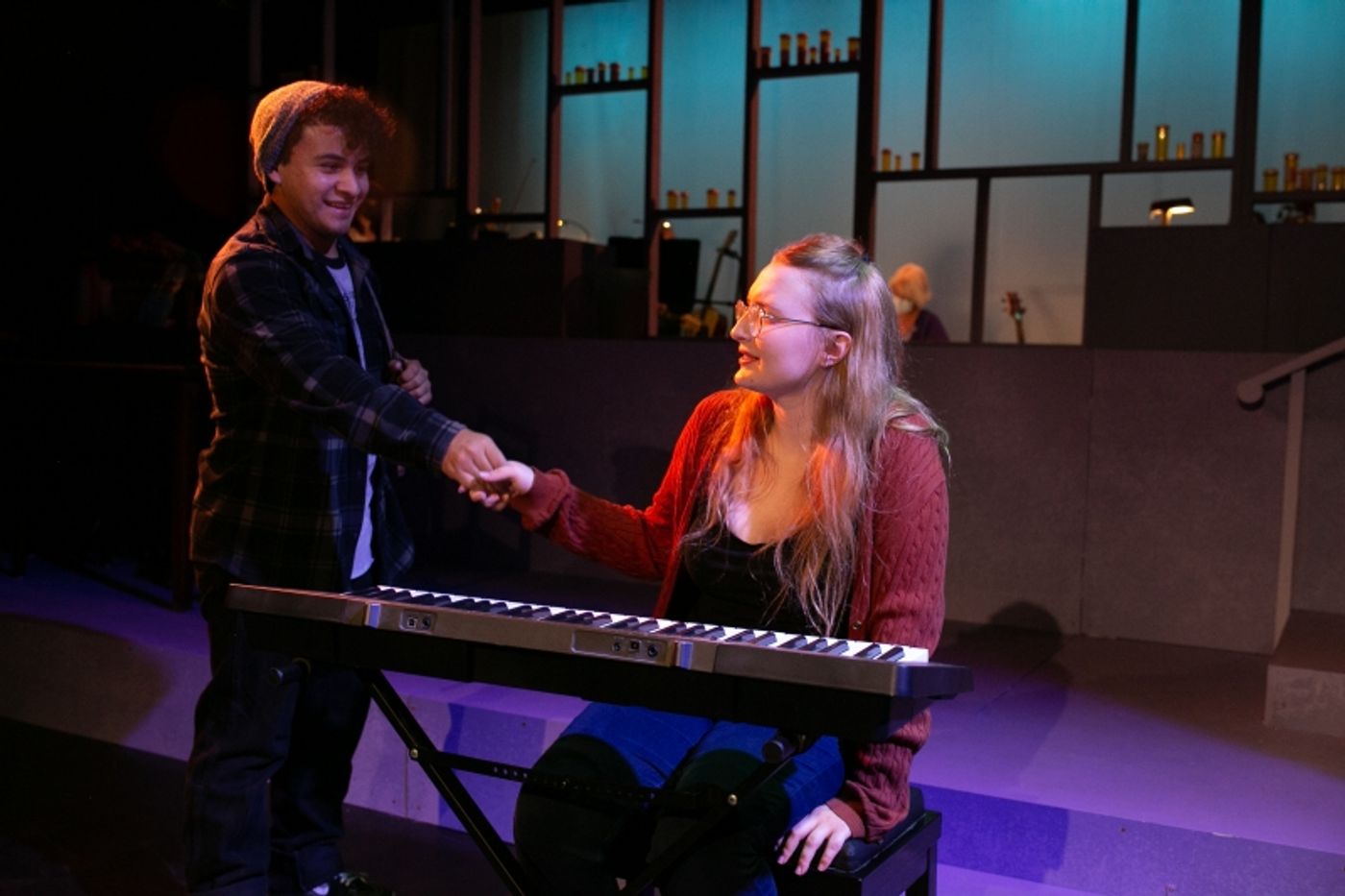
Natalie, Diana's daughter (beautifully rendered with suffocating anxiety by Allie Devaney), is a talented pianist with hopes of pursuing advanced studies, but she's distracted by the chaos of her home life and fears she's turning into her mother. She feels invisible and doesn't think she'll be much use to a partner in an intimate relationship.
Fortunately, Natalie has the gift of Henry, an equally talented schoolmate who adores and dotes on her. Essayed with such tender integrity by Daniel Altamirano, Henry's steadfast affection for Natalie mirrors the consistent security that Dan provides Diana. Both men are models of authentic masculinity, and they are all beautiful people with real problems, who fight like hell to keep everything together.
Central to Diana's profound malaise is the same source of comfort that has kept her alive these past eighteen years: her son, Gabe. Incapable of facing Gabe's traumatic death as a baby, Diana has fashioned an alternate reality where she raises Gabe and keeps him around as an integral part of the family. Xander Mason imbues Gabe with a feline elegance, a ghost with a seductive charisma that keeps Diana captive to near oblivion. Diana's only path to wellness depends on her ability to let go of Gabe.
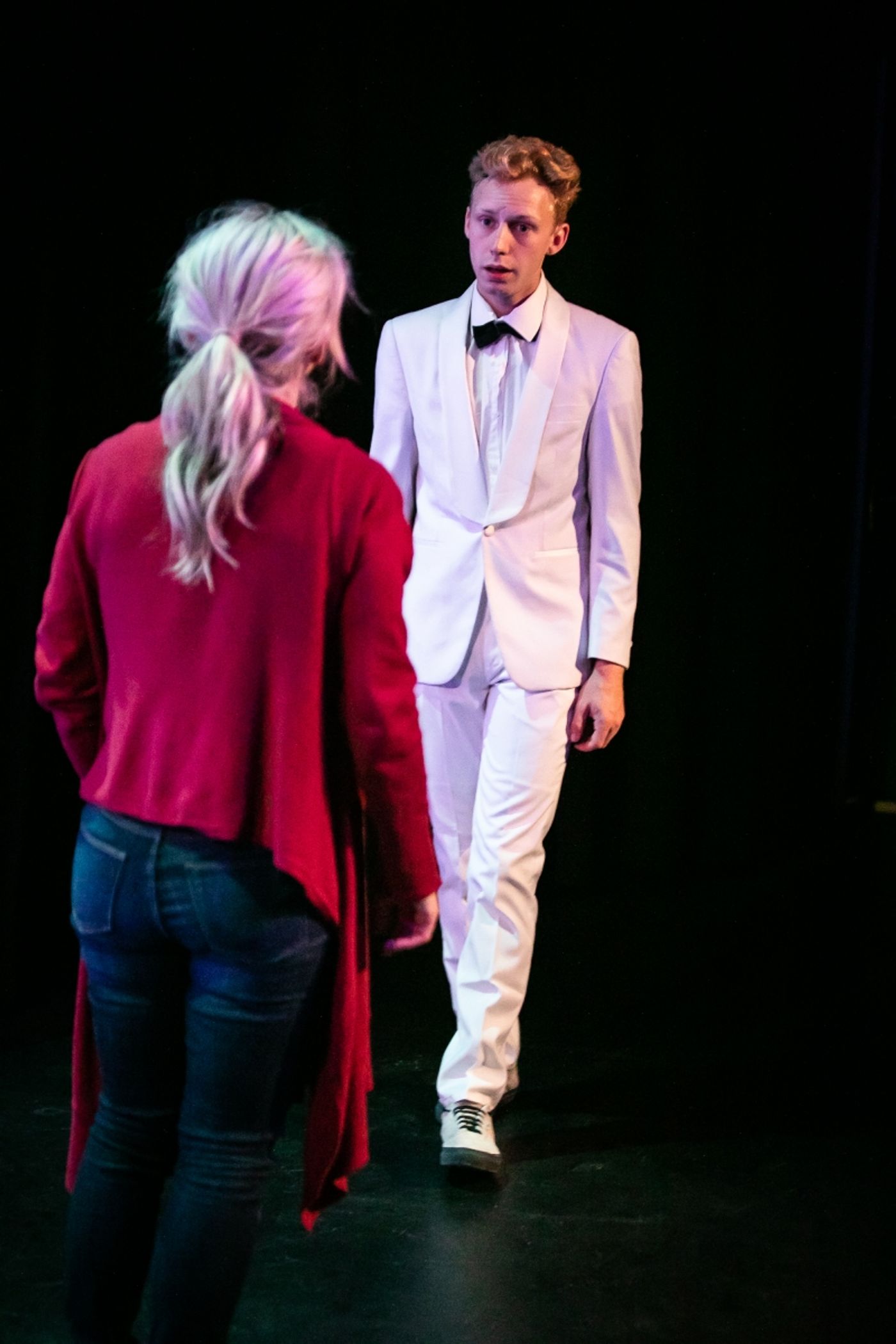
Which brings us to the last half hour of intensified catharsis, the tug-and-pull sequences between husband and wife, between daughter and boyfriend, between son and mother, and between mother and psychiatrist (played by the devilishly charming Dennis Tamblyn, who provides one of the few comic moments as Diana's "rock star" psychiatrist).
While I hesitate to reveal how it ends, here's a reminder that there is hope beyond medication and electroconvulsive therapy, citing Diana's ultimate choice to renounce psychiatric treatments to pursue an uncertain but piercingly honest effort to reclaim her soul. Her redemption is at hand, or at least we hope so. Here the writers lean on the maudlin appeal of Diana's resolve, but we're not too jaded to dismiss one's spiritual awakening as a cure-all for the gravest of ills.
Kudos to Tom Benson's scenic design, constructed by Mike Muirhead. The most effective element of the set is the surrounding grid that doubles as a unit of shelves, which holds a creepy collection of drugs and elicits a stark reminder of an addicted culture, rearing Big Pharma's ugly head. It also serves as a set of windows through which we find a psychedelic reproduction on a cyclorama (lighting design courtesy of Christopher Mason), looming over a terrific band of musicians led by star-pianist and music director Liz Spencer.
SAPAC's commitment to mental health has them working in partnership with the National Alliance in Mental Illness of Southern Arizona (NAMI), whose presence is visible on performance dates and remains available after curtain call for audience talk-backs.
So if you're not quite up for a comedy but would feel galvanized by the theatre's effort to purge some unspoken tumult, NEXT TO NORMAL is the ticket. Bring your tissues.
Photo credit: Kathleen Dreier ~~https://kathleendreier.com/
NEXT TO NORMAL runs through August 29, 2021
For tickets, contact SAPAC (401) 594-4895 ~~ http://sapactucson.com/
Scoundrel and Scamp Theatre @ the Historic Y
738 N 5th Ave. Tucson, AZ 85705
Scoundrel and Scamp Theatre requires that all audience members wear masks inside the venue. Because of the limited seating of the theater, there will not be social distancing of seats.
Reader Reviews

Videos

